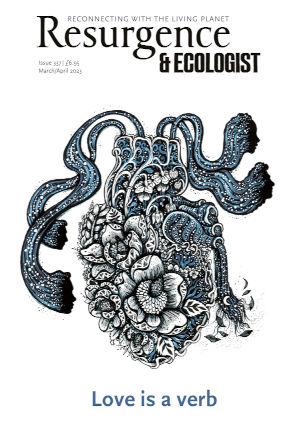There have been two major moral shifts in western climate activism over the last decades. First, the ‘sustainability promise’ to protect the planet for future generations has been complicated by the fact that the crisis is already here. We now need to both mitigate future escalation and deal with already measurable increases in flooding, drought and extreme heat. The second shift is a renewed attention to the political and economic systems underpinning the crisis. This ‘climate justice’ lens seeks to understand deeper questions of consumerism, exploitation and power than the mainstream climate action of the 1970s–1990s often acknowledged. Effective altruism kingpin William MacAskill’s new book What We Owe the Future provides troubling fodder for arguments against both.
The book is about ‘long-termism’. This is the concept, first articulated by MacAskill and colleague Toby Ord in 2017, that the lives of future generations carry the same moral importance as those of people alive today. MacAskill explains this in two ways: life, for future people, “could be extraordinarily good or inordinately bad”; and there might be “vastly more people in the distant future than there are today”. We must, he says, treat our actions as the “very beginning of history”, in order to “steer the future onto a better course”. This necessitates recognising that our moral choices have long-term impact, avoiding the ‘lock-in’ of negative cultural values and technologies, and working to understand what the future risks are.
These basic tenets – ‘weak long-termism’ – are morally intuitive. Most political movements seek lasting impact; and protecting future generations from catastrophic climate collapse is a naturally long-termist view. But the book implies, and MacAskill has explicitly set out, a more difficult strong reading. If there will be more people alive in future than today, and all lives are equally important, then the wellbeing of future generations should be our moral priority. By this logic, perhaps we shouldn’t be spending money on those curently affected by flooding, heat and other crises. Our entire focus should be on future emissions.
MacAskill’s proposal for steering the future onto a better course is similarly founded on moral mathematics. MacAskill made his name in 2009, when he co-founded the effective altruist (EA) network Giving What We Can to encourage people to donate 10% of their income to “effective charities”. The group argues that we can be quantitative about ‘good’. It puts together “expert evaluations” of the most pressing issues facing humanity – key causes include malaria, nuclear threat and animal welfare – and assesses the relative impact of different charities addressing them. It then channels donations – US$300 million to date – into these “high-impact” charities. Morally, explains philosopher Alice Crary, the group takes a ‘God’s-eye’ view of a problem and “arrives at single judgements about how to do ‘the most good’.
MacAskill avoids any specific recommendations for donations in his book. But the Giving What You Can 2022 climate charity recommended a focus on clean energy generation, nuclear power, carbon offsetting and innovation. This is a spending profile characteristic of the EA’s “tech- and capital-friendly research agenda”. The ‘climate justice’ lens suggests that these investments are worth little if they do not also grapple with the underlying drivers of the crisis, such as power imbalance, consumerism and the pursuit of profit. For example, we must of course invest in wind turbines, but this must flow from democratic and equitable decision-making and management systems. Poorly regulated and poorly managed clean energy investment is already causing the destruction of precious ancient woodland and Indigenous ground, is not facilitating the potential energy security, poverty alleviation and wellbeing benefits of renewables, and frequently passes unnecessary added energy costs to households.
In practice, MacAskill is often, but not always, more moderate. He does not suggest we abandon people to wildfires and floods. In What We Owe the Future he encourages a common-sense approach that includes engaging with political systems, creating more democratic decision-making processes, and actively addressing inequality. He has sometimes distanced himself from more extreme interpreters of his ideas – including Elon Musk, tech bros and high-profile effective altruist Sam Bankman-Fried, founder of the collapsed crypto exchange FTX. But all this distancing and qualification reinforces the sense that the entire endeavour is based on a rather shaky moral framework. MacAskill’s book is informative, but if you aren’t sold on EA or MacAskill, then reading about how his ideas might extend over all human time will be a queasy experience.






